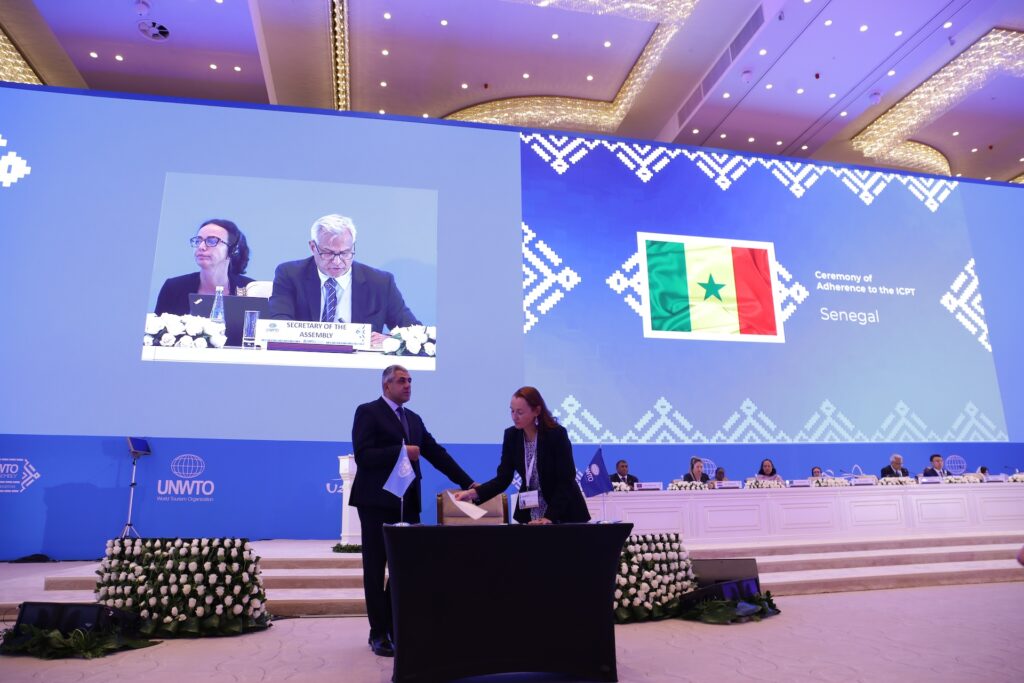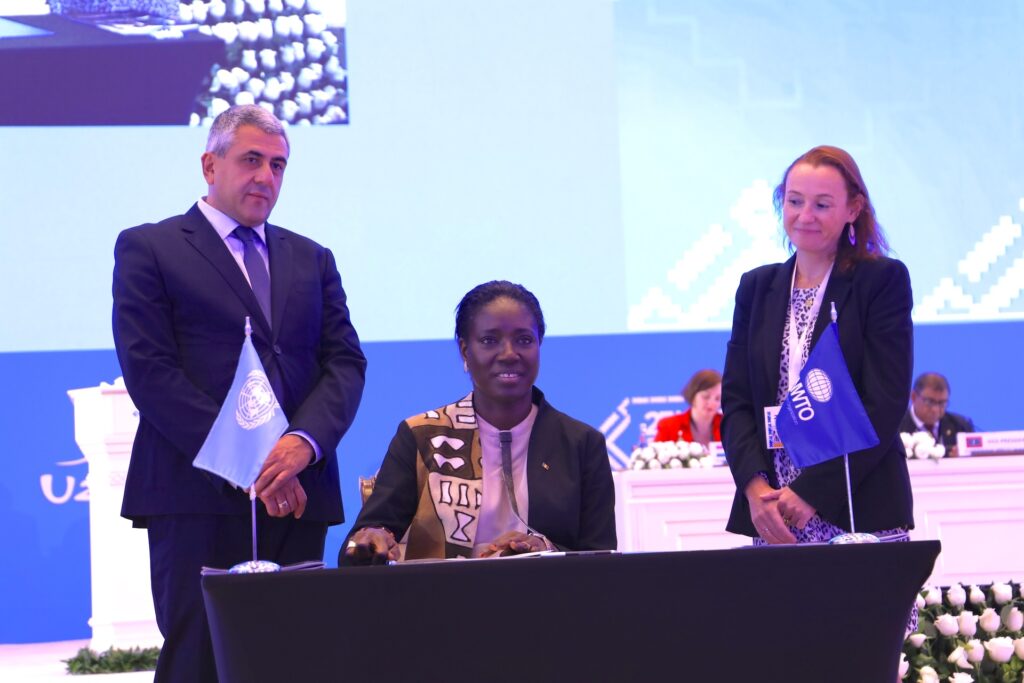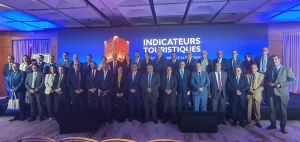Picture: The Ambassador of Senegal to Spain H.E Mariame Sy (middle) signed on behalf of the country
Senegal has taken a pioneering step as the first African nation to sign the International Code for the Protection of Tourists, reinforcing its commitment to ensuring the safety and rights of travellers in the post-COVID era.
At the 25th General Assembly held in Samarkand, Uzbekistan, Mr. Zurab Pololikashvili, Secretary General UNWTO extended his warm congratulations to the West African nation and several others for their commitment to the International Code for the Protection of Tourists (ICPT). The ICPT is a groundbreaking international legal framework that aims to rebuild consumer confidence in the travel industry and create a more equitable balance of responsibilities among tourism stakeholders.
The Ambassador of Senegal to Spain H.E Mariame Sy signed on behalf of the country.
Addressing the assembly, Mr. Pololikashvili highlighted the essence of a harmonized international legal framework in restoring trust among travellers. He stressed the necessity of clear, transparent, and efficient frameworks to safeguard tourists as consumers, asserting that the ICPT would deliver precisely that.
“This is a landmark first,” Mr. Pololikashvili declared, emphasising the uniqueness of the ICPT as a legal instrument created by UNWTO. Its primary objective is to ensure the protection of tourists and their consumer rights. By doing so, it aims to boost confidence within the tourism sector.

The success of the ICPT, as Mr. Pololikashvili underlined, depends on governments worldwide actively adhering to its provisions. He commended eight countries, Argentina, Brazil, Lebanon, Lithuania, Portugal, Senegal, Uruguay, and Venezuela, for taking the pioneering step of adhering to the code and hoped they would serve as exemplars for other nations.
“Your leadership is essential for addressing some of the biggest challenges that our sector is facing. It means we are placing the wellbeing of the tourists at the heart of what we do,” the Secretary General maintained.
Mr. Pololikashvili also stressed the essential role of leadership in addressing the challenges that the tourism sector is currently facing. Placing the well-being of tourists at the heart of their efforts, he urged nations to work collaboratively to ensure a better recovery for the industry.
The International Code for the Protection of Tourists (ICPT) sets forth a comprehensive set of international standards for the protection of tourists in emergency situations. Furthermore, it addresses consumer rights of tourists in a post-COVID-19 world. The code builds upon the work done by UNWTO and has been adapted to the unique circumstances created by the ongoing pandemic. It offers a coordinated approach to assisting international tourists during emergency situations, with the ultimate goal of fostering a safer and more secure environment for travelers.
The adherence of nations to the ICPT represents a significant step forward in ensuring that the tourism industry emerges from the challenges of the pandemic more resilient and responsive to the needs of tourists worldwide.







